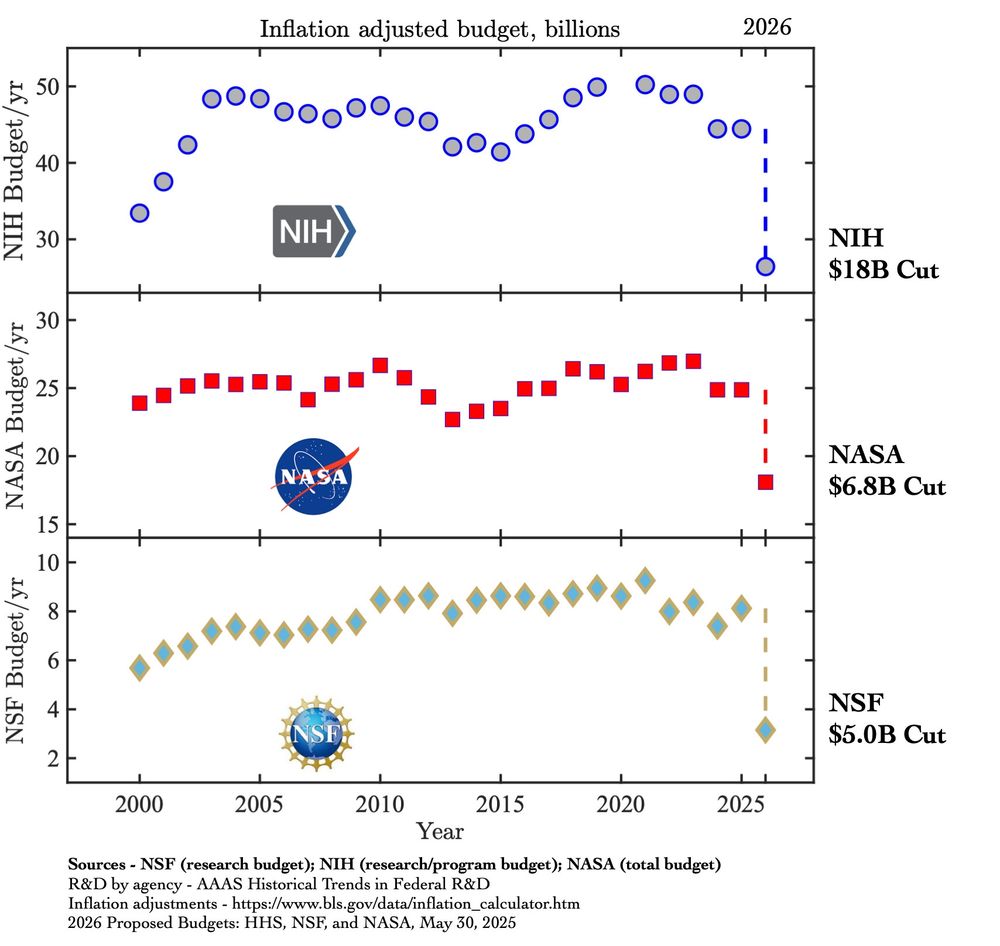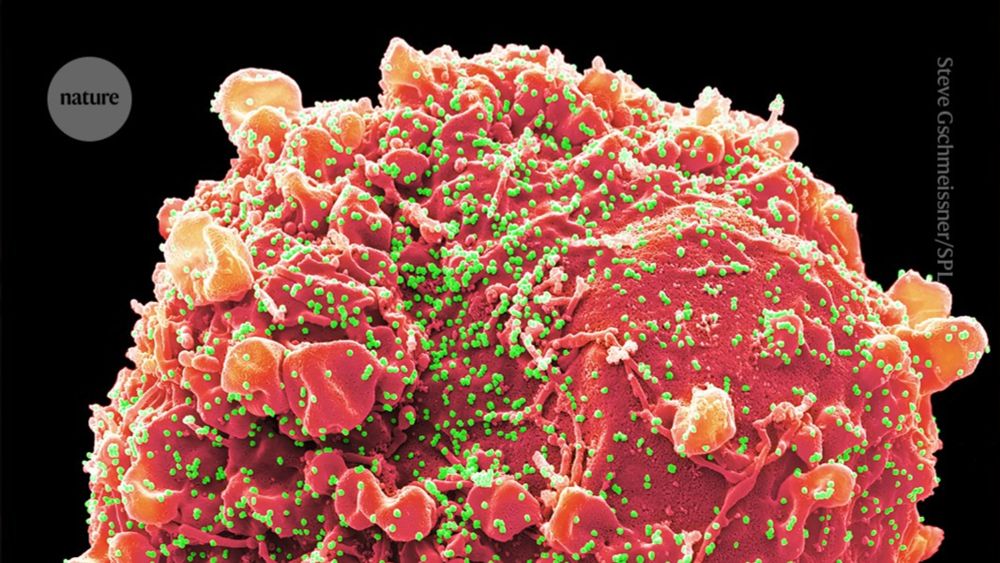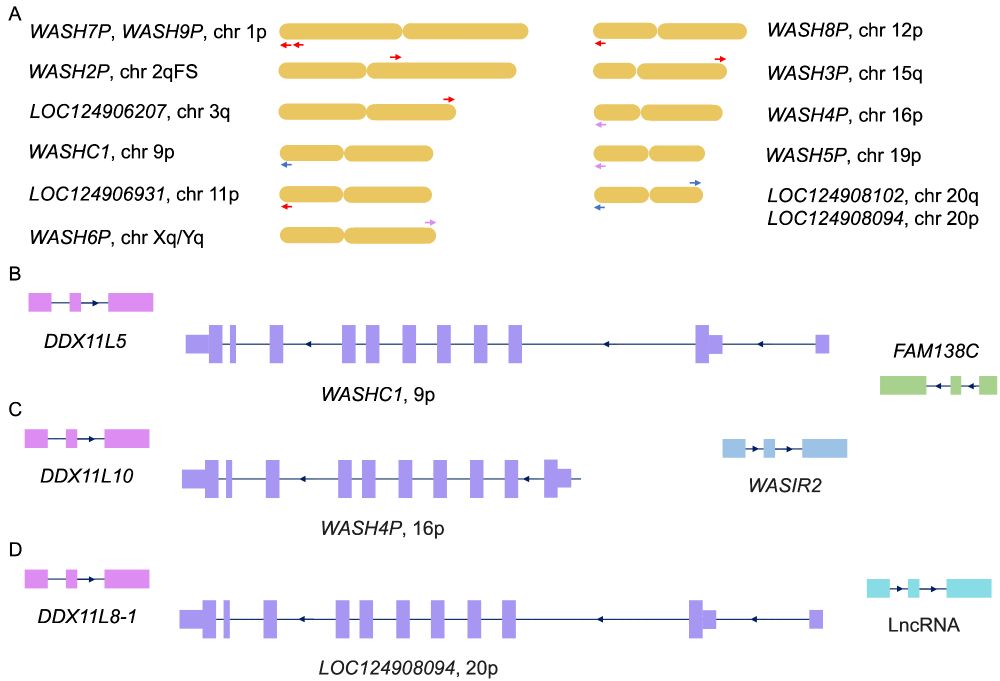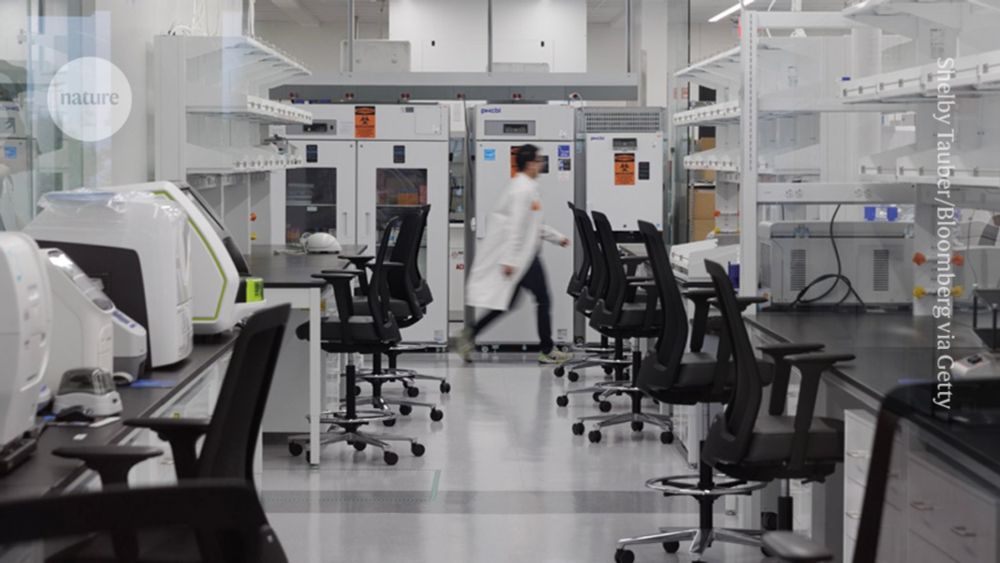
Reposted by Michael Tress
Our 2025 State of the Climate Report was just published in BioScience by scientists from around the world including @michaelemann.bsky.social @petergleick.bsky.social This video (2 minutes) shows the key highlights: doi.org/10.1093/bios...
November 2, 2025 at 5:13 PM
Our 2025 State of the Climate Report was just published in BioScience by scientists from around the world including @michaelemann.bsky.social @petergleick.bsky.social This video (2 minutes) shows the key highlights: doi.org/10.1093/bios...
Reposted by Michael Tress
🚨 Earth's vital signs are flashing red.
🌡️ 2024 was the hottest year in recorded history.
Read the latest Climate report from @williamripple.bsky.social and Christopher Wolf's team, published in BioScience.
oxford.ly/47i6K5j
🌡️ 2024 was the hottest year in recorded history.
Read the latest Climate report from @williamripple.bsky.social and Christopher Wolf's team, published in BioScience.
oxford.ly/47i6K5j

October 31, 2025 at 8:00 PM
🚨 Earth's vital signs are flashing red.
🌡️ 2024 was the hottest year in recorded history.
Read the latest Climate report from @williamripple.bsky.social and Christopher Wolf's team, published in BioScience.
oxford.ly/47i6K5j
🌡️ 2024 was the hottest year in recorded history.
Read the latest Climate report from @williamripple.bsky.social and Christopher Wolf's team, published in BioScience.
oxford.ly/47i6K5j
Reposted by Michael Tress
We have recalculated APPRIS principal isoforms for GENCODE v48 / Ensembl 114 human.
GENCODE added loss of function genes to this version and we discovered that this caused the TRIFID scores to change, affecting some of the PRINCIPAL:2 -> PRINCIPAL:5 isoforms.
Our fault, we asked for the change!
GENCODE added loss of function genes to this version and we discovered that this caused the TRIFID scores to change, affecting some of the PRINCIPAL:2 -> PRINCIPAL:5 isoforms.
Our fault, we asked for the change!
October 15, 2025 at 2:02 PM
We have recalculated APPRIS principal isoforms for GENCODE v48 / Ensembl 114 human.
GENCODE added loss of function genes to this version and we discovered that this caused the TRIFID scores to change, affecting some of the PRINCIPAL:2 -> PRINCIPAL:5 isoforms.
Our fault, we asked for the change!
GENCODE added loss of function genes to this version and we discovered that this caused the TRIFID scores to change, affecting some of the PRINCIPAL:2 -> PRINCIPAL:5 isoforms.
Our fault, we asked for the change!
So, our definitive paper on the human reference gene set is out this week in Database (Oxford).
We merged and compared @ensembl.org / @gencodegenes.bsky.social , RefSeq and UniProtKB coding genes and investigated the agreements and discrepancies.
Details of what we found in the thread ...
We merged and compared @ensembl.org / @gencodegenes.bsky.social , RefSeq and UniProtKB coding genes and investigated the agreements and discrepancies.
Details of what we found in the thread ...

September 30, 2025 at 2:25 PM
So, our definitive paper on the human reference gene set is out this week in Database (Oxford).
We merged and compared @ensembl.org / @gencodegenes.bsky.social , RefSeq and UniProtKB coding genes and investigated the agreements and discrepancies.
Details of what we found in the thread ...
We merged and compared @ensembl.org / @gencodegenes.bsky.social , RefSeq and UniProtKB coding genes and investigated the agreements and discrepancies.
Details of what we found in the thread ...
Reposted by Michael Tress
There are 2 previous historical cases of countries destroying their science and universities, crippling them for decades: Lysenkoism in the USSR and Nazi Germany. The Trump administration will be the 3rd.
It's not just budgets but research, institutions, expertise, and training the next generation.
It's not just budgets but research, institutions, expertise, and training the next generation.

May 31, 2025 at 4:43 AM
There are 2 previous historical cases of countries destroying their science and universities, crippling them for decades: Lysenkoism in the USSR and Nazi Germany. The Trump administration will be the 3rd.
It's not just budgets but research, institutions, expertise, and training the next generation.
It's not just budgets but research, institutions, expertise, and training the next generation.
Reposted by Michael Tress
The latest human GENCODE releases for Human (48) and Mouse (M37), have just been released. They're available via gencodegenes.org and visible in @ensembl.bsky.social genome browser as part of Ensembl 114 ensembl.org
GENCODE - Home page
gencodegenes.org
May 8, 2025 at 9:13 AM
The latest human GENCODE releases for Human (48) and Mouse (M37), have just been released. They're available via gencodegenes.org and visible in @ensembl.bsky.social genome browser as part of Ensembl 114 ensembl.org
Reposted by Michael Tress
As I reported, ALL research abroad - especially if under a subaward - is in danger.
“I don’t know how to make this clearer.. If a study has a foreign site, we need to start closing it down or finding a different way to fund it that can be tracked properly,” Matthew Memoli wrote to staff.
“I don’t know how to make this clearer.. If a study has a foreign site, we need to start closing it down or finding a different way to fund it that can be tracked properly,” Matthew Memoli wrote to staff.
May 2, 2025 at 8:14 PM
As I reported, ALL research abroad - especially if under a subaward - is in danger.
“I don’t know how to make this clearer.. If a study has a foreign site, we need to start closing it down or finding a different way to fund it that can be tracked properly,” Matthew Memoli wrote to staff.
“I don’t know how to make this clearer.. If a study has a foreign site, we need to start closing it down or finding a different way to fund it that can be tracked properly,” Matthew Memoli wrote to staff.
Reposted by Michael Tress
Per source, NIH has been instructed to hold off from issuing ALL awards to Harvard, Cornell, Columbia, Brown, and Northwestern (including med schools)
Agency staff have also been instructed to not speak about this funding freeze to grantees and applicants
Agency staff have also been instructed to not speak about this funding freeze to grantees and applicants
April 18, 2025 at 2:52 PM
Per source, NIH has been instructed to hold off from issuing ALL awards to Harvard, Cornell, Columbia, Brown, and Northwestern (including med schools)
Agency staff have also been instructed to not speak about this funding freeze to grantees and applicants
Agency staff have also been instructed to not speak about this funding freeze to grantees and applicants
Reposted by Michael Tress
This week's dump takes the cancelled HHS grants and programs from 42 pages to 51.
New this week: NIH has begun terminating projects about misinformation. This comes after the agency sent out a data call on March 26.
One cancelled grant: "Cancer misinformation on social media and its correction"
New this week: NIH has begun terminating projects about misinformation. This comes after the agency sent out a data call on March 26.
One cancelled grant: "Cancer misinformation on social media and its correction"
April 4, 2025 at 9:40 PM
This week's dump takes the cancelled HHS grants and programs from 42 pages to 51.
New this week: NIH has begun terminating projects about misinformation. This comes after the agency sent out a data call on March 26.
One cancelled grant: "Cancer misinformation on social media and its correction"
New this week: NIH has begun terminating projects about misinformation. This comes after the agency sent out a data call on March 26.
One cancelled grant: "Cancer misinformation on social media and its correction"
"Peshkin said that Petrova was a highly skilled researcher and had a visa that enabled her to travel abroad freely. In February, when on vacation, her boss asked her to pick up frog embryo samples from colleagues in France."
Starting to see a pattern here ...
www.theguardian.com/us-news/2025...
Starting to see a pattern here ...
www.theguardian.com/us-news/2025...

Russian scientist working at Harvard detained by Ice at Boston airport
Kseniia Petrova was returning to the US from a trip to France when officials revoked her visa and detained her
www.theguardian.com
March 28, 2025 at 12:08 PM
"Peshkin said that Petrova was a highly skilled researcher and had a visa that enabled her to travel abroad freely. In February, when on vacation, her boss asked her to pick up frog embryo samples from colleagues in France."
Starting to see a pattern here ...
www.theguardian.com/us-news/2025...
Starting to see a pattern here ...
www.theguardian.com/us-news/2025...
Reposted by Michael Tress
Yesterday when I talked to @maxkozlov.bsky.social about this, I wondered which of my NIH-funded colleagues would have their grants cut.
All of them. Research on pandemic viruses has now ground to a screeching halt in the US.
www.nature.com/articles/d41...
All of them. Research on pandemic viruses has now ground to a screeching halt in the US.
www.nature.com/articles/d41...

Exclusive: NIH to cut grants for COVID research, documents reveal
Studies on climate change and South Africa are also on the latest list of grants to be terminated, according to updated documents obtained by Nature.
www.nature.com
March 26, 2025 at 2:11 PM
Yesterday when I talked to @maxkozlov.bsky.social about this, I wondered which of my NIH-funded colleagues would have their grants cut.
All of them. Research on pandemic viruses has now ground to a screeching halt in the US.
www.nature.com/articles/d41...
All of them. Research on pandemic viruses has now ground to a screeching halt in the US.
www.nature.com/articles/d41...
"Since its establishment in 1898, the US National Plant Germplasm System and the scientists who support it have maintained the agricultural plant species that undergird our food system. Food security depends on the availability of diverse plant genetic resources."
www.nytimes.com/2025/03/22/o...
www.nytimes.com/2025/03/22/o...

Opinion | Why Did Elon Musk Go After Bunkers Full of Seeds? (Gift Article)
Gene banks are like a survivalist cache: our nation’s safeguard against all future challenges to growing the food we need.
www.nytimes.com
March 25, 2025 at 9:28 AM
"Since its establishment in 1898, the US National Plant Germplasm System and the scientists who support it have maintained the agricultural plant species that undergird our food system. Food security depends on the availability of diverse plant genetic resources."
www.nytimes.com/2025/03/22/o...
www.nytimes.com/2025/03/22/o...
“My overall concern is whether this is a sensible use of resources rather than spending the money on trying to prevent species becoming extinct,”
“As it is, we have some cute-looking hairy mice, and we have learned little biology.”
www.theguardian.com/science/2025...
“As it is, we have some cute-looking hairy mice, and we have learned little biology.”
www.theguardian.com/science/2025...

Scientists aiming to bring back woolly mammoth create woolly mice
Genetically modified mice have traits geared towards cold tolerance, in step towards modifying elephants
www.theguardian.com
March 4, 2025 at 8:04 PM
“My overall concern is whether this is a sensible use of resources rather than spending the money on trying to prevent species becoming extinct,”
“As it is, we have some cute-looking hairy mice, and we have learned little biology.”
www.theguardian.com/science/2025...
“As it is, we have some cute-looking hairy mice, and we have learned little biology.”
www.theguardian.com/science/2025...
An outgoing NIH director: "I think if Republicans in Congress don’t act soon ... we are damn near Trump realizing his dream of Putinizing America. I honestly, 100% believe if he’s not removed from office soon, 2024 will be our last free and fair election."
golikehellmachine.com/doge-is-four...
golikehellmachine.com/doge-is-four...

Nate Brought | Maryland
I am the Director of the Executive Secretariat at the National Institutes of Health until COB Friday, February 28.
golikehellmachine.com
February 24, 2025 at 5:06 PM
An outgoing NIH director: "I think if Republicans in Congress don’t act soon ... we are damn near Trump realizing his dream of Putinizing America. I honestly, 100% believe if he’s not removed from office soon, 2024 will be our last free and fair election."
golikehellmachine.com/doge-is-four...
golikehellmachine.com/doge-is-four...
Reposted by Michael Tress
Users of APPRIS may have noticed that there is a new category of principal isoforms, Principal:M.
These principal isoforms are exclusive to the human gene set and are principal isoforms that have been manually corrected. In GENCODE v47 there were 45 genes with Principal:M isoforms.
Here is DCD:
These principal isoforms are exclusive to the human gene set and are principal isoforms that have been manually corrected. In GENCODE v47 there were 45 genes with Principal:M isoforms.
Here is DCD:

February 24, 2025 at 12:21 PM
Users of APPRIS may have noticed that there is a new category of principal isoforms, Principal:M.
These principal isoforms are exclusive to the human gene set and are principal isoforms that have been manually corrected. In GENCODE v47 there were 45 genes with Principal:M isoforms.
Here is DCD:
These principal isoforms are exclusive to the human gene set and are principal isoforms that have been manually corrected. In GENCODE v47 there were 45 genes with Principal:M isoforms.
Here is DCD:
Reposted by Michael Tress
APPRIS has updated to GENCODE v47 and mouse M36. Danio rerio has also been updated to Ensembl 113.
in this release 80.7% of human coding genes have a PRINCIPAL:1 isoform.
Also, we have begun the manual curation of principal isoforms. More soon.
@gencodegenes.bsky.social @ensembl.bsky.social
in this release 80.7% of human coding genes have a PRINCIPAL:1 isoform.
Also, we have begun the manual curation of principal isoforms. More soon.
@gencodegenes.bsky.social @ensembl.bsky.social
January 22, 2025 at 10:35 AM
APPRIS has updated to GENCODE v47 and mouse M36. Danio rerio has also been updated to Ensembl 113.
in this release 80.7% of human coding genes have a PRINCIPAL:1 isoform.
Also, we have begun the manual curation of principal isoforms. More soon.
@gencodegenes.bsky.social @ensembl.bsky.social
in this release 80.7% of human coding genes have a PRINCIPAL:1 isoform.
Also, we have begun the manual curation of principal isoforms. More soon.
@gencodegenes.bsky.social @ensembl.bsky.social
Our paper analysing the protein coding genes added as part of the new T2T-CHM13 assembly of the human genome was officially published over the holidays.
In particular it shows that what was previously thought to be the human WASH1C gene is actually a pseudogene.
bsky.app/profile/mich...
In particular it shows that what was previously thought to be the human WASH1C gene is actually a pseudogene.
bsky.app/profile/mich...
We find that 12 of the 13 WASHC1 paralogues are likely to be pseudogenes, and that the only functional WASHC1 gene is on chromosome 20, not on chromosome 9 as was previously thought.
This goes some way to explaining why so little is known about this vital gene, an integral part of the WASH complex.
This goes some way to explaining why so little is known about this vital gene, an integral part of the WASH complex.

January 7, 2025 at 10:30 AM
Our paper analysing the protein coding genes added as part of the new T2T-CHM13 assembly of the human genome was officially published over the holidays.
In particular it shows that what was previously thought to be the human WASH1C gene is actually a pseudogene.
bsky.app/profile/mich...
In particular it shows that what was previously thought to be the human WASH1C gene is actually a pseudogene.
bsky.app/profile/mich...
This week's paper (well, last week's paper, but it took time to process) returns to the theme of reference protein coding genes. We wanted to know if the human proteome was more streamlined after we merged RefSeq, @gencodegenes.bsky.social and UniProtKB back in 2018.
www.biorxiv.org/content/10.1...
www.biorxiv.org/content/10.1...

More than 2,500 coding genes in the human reference gene set still have unsettled status
In 2018 we analysed the three main repositories for the human proteome, Ensembl/GENCODE, RefSeq and UniProtKB. They disagreed on the coding status of one of every eight annotated coding genes. The ana...
www.biorxiv.org
December 10, 2024 at 11:57 AM
This week's paper (well, last week's paper, but it took time to process) returns to the theme of reference protein coding genes. We wanted to know if the human proteome was more streamlined after we merged RefSeq, @gencodegenes.bsky.social and UniProtKB back in 2018.
www.biorxiv.org/content/10.1...
www.biorxiv.org/content/10.1...
So, this week's paper is about signal peptides and what they reveal about the function of N-terminally extended protein isoforms and other upstream translation such as uORFs.
www.biorxiv.org/content/10.1...
www.biorxiv.org/content/10.1...

The rapid degradation of translated upstream regions points to an inefficient translation initiation process
Large-scale experimental analyses find ever more abundant evidence of translation from start codons upstream of the canonical start site. This translation either generates entirely new proteins (from ...
www.biorxiv.org
November 28, 2024 at 8:20 AM
So, this week's paper is about signal peptides and what they reveal about the function of N-terminally extended protein isoforms and other upstream translation such as uORFs.
www.biorxiv.org/content/10.1...
www.biorxiv.org/content/10.1...
ARHGAP36, a gene overexpressed in hair follicles in Bazex-Dupre-Christol syndrome in humans, is the gene behind orange fur and calicos and tortoiseshells in cats.
Fascinating.
www.science.org/content/arti...
Fascinating.
www.science.org/content/arti...

Gene behind orange fur in cats found at last
After 60 years, scientists know why gingers, calicos, and tortoiseshells look the way they do
www.science.org
November 27, 2024 at 11:20 PM
ARHGAP36, a gene overexpressed in hair follicles in Bazex-Dupre-Christol syndrome in humans, is the gene behind orange fur and calicos and tortoiseshells in cats.
Fascinating.
www.science.org/content/arti...
Fascinating.
www.science.org/content/arti...
By the way, I totally disown the AI-generated rubbish that accompanies the paper we published today. I don't know what that gains apart from sensationalism.
www.biorxiv.org/content/10.1...
www.biorxiv.org/content/10.1...

A deep audit of the PeptideAtlas database uncovers evidence for unannotated coding genes and aberrant translation
The human genome has been the subject of intense scrutiny by experimental and manual curation projects for more than two decades. Novel coding genes have been proposed from large-scale RNASeq, ribosom...
www.biorxiv.org
November 18, 2024 at 5:35 PM
By the way, I totally disown the AI-generated rubbish that accompanies the paper we published today. I don't know what that gains apart from sensationalism.
www.biorxiv.org/content/10.1...
www.biorxiv.org/content/10.1...
Reposted by Michael Tress
A deep audit of the PeptideAtlas database uncovers evidence for unannotated coding genes and aberrant translation www.biorxiv.org/cont...
---
#proteomics #prot-preprint
---
#proteomics #prot-preprint

November 16, 2024 at 8:40 AM
A deep audit of the PeptideAtlas database uncovers evidence for unannotated coding genes and aberrant translation www.biorxiv.org/cont...
---
#proteomics #prot-preprint
---
#proteomics #prot-preprint
So, we have posted a new paper at BioRxiv. We carried out a deep manual curation of the human peptides identified in PeptideAtlas. This allowed to fill in some of the blanks in the @gencodegenes.bsky.social human gene set, including 16 novel protein coding genes.
www.biorxiv.org/content/10.1...
www.biorxiv.org/content/10.1...

A deep audit of the PeptideAtlas database uncovers evidence for unannotated coding genes and aberrant translation
The human genome has been the subject of intense scrutiny by experimental and manual curation projects for more than two decades. Novel coding genes have been proposed from large-scale RNASeq, ribosom...
www.biorxiv.org
November 18, 2024 at 9:42 AM
So, we have posted a new paper at BioRxiv. We carried out a deep manual curation of the human peptides identified in PeptideAtlas. This allowed to fill in some of the blanks in the @gencodegenes.bsky.social human gene set, including 16 novel protein coding genes.
www.biorxiv.org/content/10.1...
www.biorxiv.org/content/10.1...
Reposted by Michael Tress
APPRIS has new annotations for GENCODE human v46 and mouse M35. The human reference set now has 16,483 genes with Principal:P1 isoforms and mouse has 18,782 genes.
Agreement with MANE Select transcripts in human (no MANE Select in mouse) has risen slightly to 17,661 genes.
appris.bioinfo.cnio.es#/
Agreement with MANE Select transcripts in human (no MANE Select in mouse) has risen slightly to 17,661 genes.
appris.bioinfo.cnio.es#/
{APPRIS} - Annotating principal splice isoforms
Explore and download data on alternative splicing annotations and principal isoforms with the APPRIS Database, WebServer and WebServices.
appris.bioinfo.cnio.es
July 3, 2024 at 3:29 PM
APPRIS has new annotations for GENCODE human v46 and mouse M35. The human reference set now has 16,483 genes with Principal:P1 isoforms and mouse has 18,782 genes.
Agreement with MANE Select transcripts in human (no MANE Select in mouse) has risen slightly to 17,661 genes.
appris.bioinfo.cnio.es#/
Agreement with MANE Select transcripts in human (no MANE Select in mouse) has risen slightly to 17,661 genes.
appris.bioinfo.cnio.es#/


